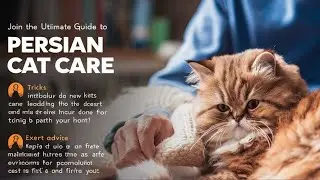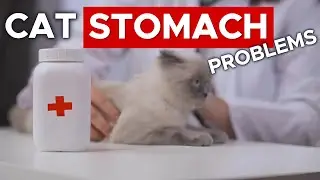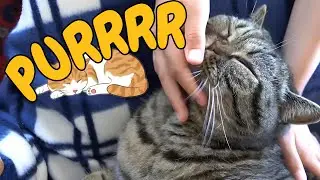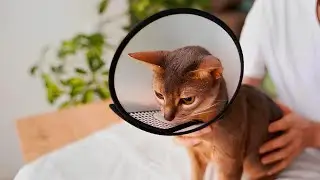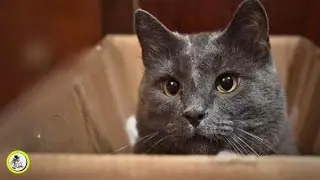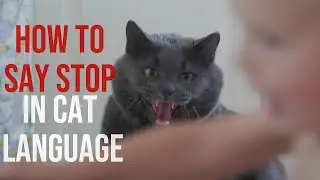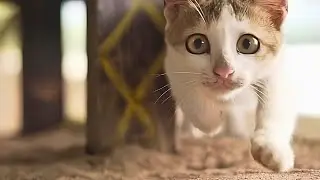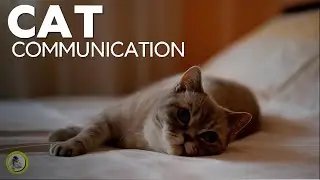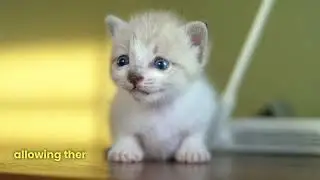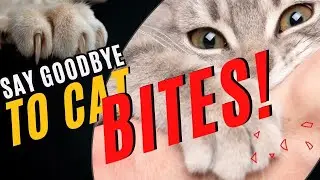My Cat Hates Me?! Decoding Misunderstood Feline Behavior (and How to Fix It!) / Cat World Academy
Understanding cat behavior and body language is essential for building a strong bond with your feline friend. Signs that your cat may not be fond of you include avoiding eye contact, flattening their ears, hissing, or swatting when you approach. Additionally, if your cat frequently hides or runs away from you, it could be a sign of discomfort or dislike. To improve your relationship with your cat, start by respecting their boundaries and providing positive reinforcement through treats and gentle interactions. Spend quality time playing and grooming your cat to strengthen your bond and show them that you're a trusted companion. On the other hand, signs that your cat loves you may include purring, rubbing against you, kneading, and bringing you "gifts" such as toys or prey. Pay attention to your cat's body language and communication cues to better understand their feelings and nurture a loving relationship.
Caring for your cat involves various essential aspects to ensure their health and happiness. Regular grooming sessions, including brushing and nail trimming, are crucial for maintaining your cat's well-being and preventing issues like hairballs and overgrown nails that can cause discomfort. Understanding your cat's behavior and training them appropriately also play significant roles in fostering a strong bond and promoting positive interactions. It's essential to provide appropriate scratching posts to satisfy their natural instinct to scratch and deter destructive behavior. Additionally, avoiding declawing, which can be painful and have long-term negative effects on your cat's physical and mental health, is vital. Whether you have a long-haired or short-haired cat, consistent care, attention, and veterinary check-ups ensure they lead a fulfilling and healthy life.
** Proper cat care involves attending to cat health, implementing effective cat training methods, understanding cat behavior, maintaining regular cat grooming routines, managing cat molting, facilitating proper cat toilet training, addressing cat scratching behaviors, nurturing kittens, and considering cat spaying or neutering.
** Zur richtigen Katzenpflege gehört es, sich um die Gesundheit der Katze zu kümmern, wirksame Trainingsmethoden anzuwenden, das Verhalten der Katze zu verstehen, die regelmäßige Katzenpflege zu pflegen, die Mauser der Katze zu bewältigen, das richtige Katzentoiletten-Training zu erleichtern, das Kratzverhalten der Katze anzusprechen, Kätzchen zu pflegen und die Kastration der Katze in Betracht zu ziehen.
** El cuidado adecuado de un gato implica atender a su salud, aplicar métodos eficaces de adiestramiento, comprender su comportamiento, mantener rutinas regulares de aseo, controlar la muda, facilitar el control de esfínteres, tratar los comportamientos de arañazo, cuidar a los gatitos y considerar la esterilización o castración.
** Des soins appropriés aux chats impliquent de veiller à leur santé, de mettre en œuvre des méthodes d'éducation efficaces, de comprendre leur comportement, de les toiletter régulièrement, de gérer leur mue, de leur apprendre à faire leurs besoins, de s'occuper de leurs griffes, d'élever les chatons et d'envisager la stérilisation du chat.
** 適切な猫のケアには、猫の健康に気を配ること、効果的な猫のしつけ方法を実施すること、猫の行動を理解すること、猫のグルーミングを定期的に行うこと、猫の脱皮を管理すること、猫のトイレのしつけを適切に行うこと、猫のひっかき行動に対処すること、子猫を育てること、猫の避妊・去勢手術を検討することなどが含まれます。
Understanding your cat's behavior and body language is crucial for maintaining a healthy relationship. If you notice signs that your cat dislikes you, such as avoiding eye contact, hissing, or swatting, it's essential to address the underlying issues. Look for cues in feline body language, like flattened ears or a tense body posture, which may indicate discomfort or dislike. To improve your bond, try engaging in interactive play sessions, offering treats, and creating a comfortable environment for your cat. Signs that your cat loves you include purring, kneading, and rubbing against you affectionately. However, if you observe persistent signs that your cat doesn't love or like you, it's essential to evaluate your interactions and seek advice from a veterinarian or animal behaviorist to address any underlying concerns. Understanding the signals your cat may be giving you is key to fostering a positive and fulfilling relationship.
** Channel Link ** / @catworldacademy
** Cat Behavor Playlist **
• Cat Behavior
** Cat Communication Playlist **
• Cat Communication
FOLLOW US ON
INSTAGRAM: / catcaretipsandhealth
TIKTOK: / catcaretipsandhealth
#CatCareTips #CatHealth #CatGrooming #CatScratching #CatNailCutting #LongFurCats #CatBrushing #CatHairballs #CatTraining #CatBehavior

![[AMV] верно, я Кира..](https://images.mixrolikus.cc/video/8-3v0E_Axvw)









